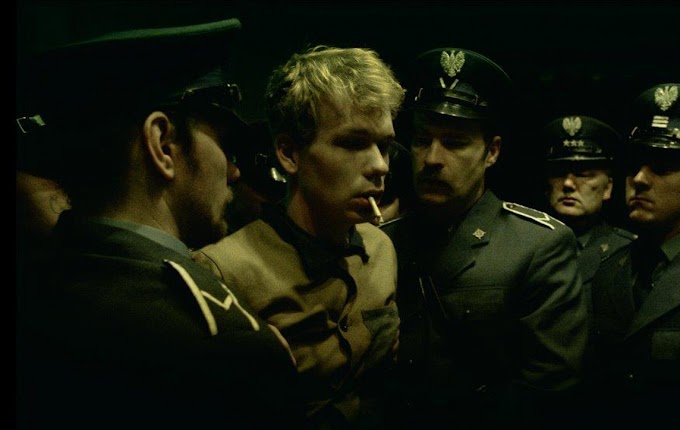
Roman (Piotr
Machalica) learns from a fellow doctor that he is, due to causes that are not
fully exposed, sexually incapacitated for the rest of his life. Married to
Hanka (Ewa Błaszczyk), he enjoins her to, if not already done, take a lover.
When he discovers clues as to the identity of this "replacement",
jealousy grips him. His marriage breaks up, despair leads him to consider
suicide. A particular cover of fatality weighs on this episode. Fatality of
impotence, line of despair leading to wanting to sacrifice one's own existence.
The pale overexposure of the photograph indicates the mental landscape of the
helpless man, subject to a fate over which he no longer has any control. This
fatality is however questioned by the story: the chance that Roman does not
answer a telephone that could spare him a suicide attempt (as a coincidence of
the public transport of Decalogue VI decided on the fatal entry of the boy into
the apartment of the luxuriant), this young singer with whom, who knows, he
could perhaps rebuild another couple than the one too eroded by his
interruption of sexual relations. “Love is in the heart, not between the legs.
It’s not gymnastics. Hanka defends herself in the face of fear of her husband's
abandonment. This part of biology turns out to be consubstantial with the
marital relationship. Once the desire is gone, the other proofs of love they
try to give to each other seem to be ineffective.
This episode
is confronted with the feeling of humiliation, redoubled by the replacement, as
lover, of a refined surgeon by a model of ineptitude in anorak. The contrast is
such that Kieślowski seems to amalgamate sexual vigor with pure and simple
imbecility. Following Hanka (who was fleeing him at the time) in the mountains,
this competitor seals the fate of another man devoured by mortification and
paranoia. The filmmaker, who adored snow sports, works with this winter of
altitude an ethereal aesthetic line, all in angelic whiteness, bringing back to
the fatal condition of one who no longer owns his body, an afterlife
designating as much the non-existence that henceforth haunts than the one
which, more concretely, would await him if he succeeded in attacking his
existence. The segment is a powerful remedy for dualistic temptations, for
hopes of autonomy of the mind from the determinism of bodies. An illustration
of the nightmare of disembodiment.

.png)

0 Comments